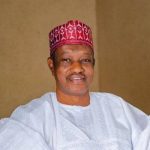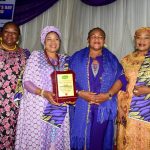My Reservation For The Banker of the Year Award On Cardoso, Nigeria’s CBN Governor
When the news broke that Mr. Olayemi Cardoso, the Governor of the Central Bank of Nigeria (CBN), had been named Central Bank Governor of the Year at the 2025 African Banker Awards, many Nigerians—especially those bearing the brunt of the country’s harsh economic realities—were left bewildered, if not insulted.
The award, announced at a glittering gala in Abidjan, Côte d’Ivoire, was reportedly in recognition of Cardoso’s “bold and strategic” leadership in implementing monetary and regulatory reforms. However, to millions of Nigerians waking up each day to rising food prices, vanishing purchasing power, and deepening poverty, the timing and premise of this award seem grossly out of touch with reality.
—
The Disconnect Between Accolades and Actuality
Let us begin with the most glaring contradiction: the state of the naira. When Mr. Cardoso took office in September 2023, the exchange rate hovered around ₦760 to $1. Today, under his watch, the naira has weakened to over ₦1,500 to $1, effectively losing more than 100% of its value in under two years.
This isn’t just a statistical figure—it’s the difference between survival and despair for millions of Nigerians. The cost of living has skyrocketed. A bag of rice that once sold for ₦30,000 now goes for over ₦70,000. Transport fares have doubled. Electricity tariffs are up. Basic healthcare and education are now luxuries. Inflation has reached suffocating levels, and the average Nigerian is grappling with extreme hardship.
So again, we ask: On what grounds was this award granted? Who exactly is benefiting from these “strategic” policies?
—
Reform Without Relief
The Cardoso-led CBN is quick to tout its floating exchange rate, tight monetary policy, and withdrawal from interventionist programs. But while these might earn applause in economic textbooks and policy circles abroad, they have unleashed untold hardship domestically.
Yes, the CBN under Cardoso has made moves toward transparency in the FX market. Yes, it has cut back on politically motivated interventionist schemes. But what it has not done is design policies with a safety net. These reforms were rolled out without thoughtful cushioning, without grassroots support structures, and without any immediate strategy to boost local productivity or stimulate job creation.
When you float a currency in a fragile economy without a strong export base or industrial capacity, you open the floodgates of chaos—and that’s exactly what happened.
—
Who Really Benefits?
One must begin to question who these reforms are actually meant to serve. Investors? Multinational institutions? Or ordinary Nigerians?
Because if the true test of economic leadership is its impact on the populace, then Mr. Cardoso’s record, frankly, has been devastating. The reality on the streets contradicts the glowing citations read at international galas. In many ways, this award mirrors the kind of elite echo chamber that praises theoretical success while ignoring lived suffering.
—
A Crisis of Credibility
The award’s organizers argue that Cardoso has restored confidence in the financial system and set Nigeria on a path to long-term macroeconomic stability. But where is the evidence? What we’ve seen is increased capital flight, hoarding of foreign currency, and a rise in speculative financial behavior. The informal sector, which accounts for over 60% of the economy, is crumbling under the weight of volatile exchange rates and purchasing power erosion.
In truth, what we are witnessing is a dangerous gap between policy projection and public reality—and no award can cover up the mounting frustration across the country.
–
Conclusion: Awards Should Reflect Impact, Not Optics
There’s no denying that reform is needed in Nigeria’s financial system. There’s also no denying that Cardoso inherited a basket of economic troubles. But the mark of a great central banker lies not just in launching reforms—but in how those reforms land on the people.
The truth is that Mr. Cardoso’s policies, while framed as necessary, have so far been more punishing than promising. And until the average Nigerian feels a positive shift in their daily life, no foreign validation or plaque on a shelf can change that.
Let us not celebrate policies that look good on paper but leave people poorer in practice. Until there is measurable, inclusive improvement in the economy, I—like many others—will hold serious reservations about any award that seems to reward hardship rather than healing.
Wilson Macaulay is a seasoned journalist, public affairs analyst, and advocate for economic justice.
He writes passionately from Warri on governance, development, and the socio-economic realities facing everyday Nigerians.
He is known for his fearless commentary and commitment to amplifying grassroots perspectives.












